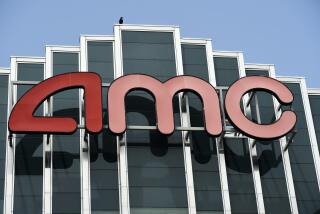The Adversaries : Crandall: American’s chairman has been an outspoken takeover foe.
- Share via
Robert L. Crandall, the feisty, chain-smoking chairman of American Airlines, is not likely to put the company up for sale without a fight, those familiar with American said Thursday.
Real estate magnate Donald J. Trump on Thursday offered $120 a share, or more than $7 billion, for American, confirming rumors that he was interested in the nation’s largest airline. American responded that it would look at Trump’s offer “in due course.”
Crandall, a vocal opponent of debt-financed takeovers, is expected “to fight Trump vigorously,” said Mark Daugherty, an airline industry analyst with the investment firm of Dean Witter Reynolds Inc. in New York.
An outspoken executive who once boasted that his enemies call him Fang, Crandall has rarely shied from controversy. He annoyed his competitors two years ago, for example, when he successfully urged the Department of Transportation to make public monthly figures showing airlines’ on-time arrival percentages.
And he upset his employees six years ago by introducing the industry’s first two-tier pay scale. Determined to lower American’s labor costs, Crandall placed new workers on a significantly lower pay scale than veteran employees. The two-tier pay scale has since spread to other airlines.
With that controversy behind him, analysts say Crandall is well regarded by his work force. It is expected that he can count on employee support to resist a takeover. Daugherty and other airline industry analysts said they doubt that Crandall would restructure American in a way that would place a heavy debt on the airline.
Rather, these analysts said, it is more likely that American will try to place a significant chunk of stock in the hands of its employees by creating an employee stock ownership plan, or ESOP, an increasingly common takeover defense.
Analysts, however, pointed out that Crandall has opposed ESOPs. “He has said that airline stocks are cyclical and don’t offer much of a dividend, and so aren’t great investments for employees,” Daugherty said. “But that doesn’t mean he won’t do it.”
Crandall has built American by making few missteps. Through creative financing deals with McDonnell Douglas, American was able to expand its fleet during the early 1980s with little risk during an economic downturn.
Aggressive Competitor
American deployed the planes to strengthen its base at Dallas-Ft. Worth and, more recently, to develop mini-hubs in Nashville, Tenn.; Charlotte, N.C., and Miami. American has also established a hub at San Jose and hopes to use it as a base for expansion into the Pacific region.
Within the past year, American has eclipsed United as the nation’s biggest air carrier and has embarked on a multibillion-dollar expansion program that includes scores of new jets plus a new maintenance facility and plans for a $1-billion terminal at Dallas-Ft. Worth International Airport.
These efforts have paid off with increased profits. AMR, American’s parent company, earned $278.9 million on revenue of $5.17 billion during the first six months of this year. A year earlier, it earned $209.8 million on revenue of $4.13 billion.
Crandall prides himself on being an aggressive competitor and once told an interviewer that he fostered a spirit of “competitive anger.” “We like to be successful,” he told Financial World magazine earlier this year. “When we’re not, we’re angry with ourselves, our colleagues and the world at large.”
Crandall, 53, did not get his start in the airline industry. After receiving an MBA from the University of Pennsylvania’s Wharton School, he put in stints at Eastman Kodak and Hallmark Cards before joining Trans World Airlines in 1966. He moved to American in 1973 as a financial vice president and rose quickly through its corporate ranks. He became the airline’s president in 1980 and succeeded Albert V. Casey as its chairman in 1985.
As chairman, Crandall has kept close watch on American’s costs and is continually coming up with ways to save money. A few years ago, he eliminated black olives from salads served on American’s airliners, saving $40,000 a year. Crandall rewards employees for money-saving suggestions with television sets, fur coats or bonuses.
Emphasis on Details
Under Crandall’s tenure, American invented the frequent-flier program, which has become one of the industry’s most popular marketing tools. The programs have become so powerful in attracting passengers that Braniff cited them as one reason that it was unable to attract enough business to avoid seeking bankruptcy protection from its creditors last week.
Crandall has stressed the importance of passenger service and, under his leadership, the airline has beefed up its ticketing and reservations staff. Each month, 300 employees are paid to fly American and take notes on the food and service.
Despite an emphasis on details, some things get missed--sometimes with embarrassing consequences. By programing the wrong numbers into its reservation computers in June, for example, American restricted too tightly the number of discount tickets it had for sale. With few cheap seats available, passengers bought tickets on other airlines. Daugherty said American lost about $35 million in potential revenue before it caught the error.
MAIN STORY: Part I, Page 1
More to Read
Inside the business of entertainment
The Wide Shot brings you news, analysis and insights on everything from streaming wars to production — and what it all means for the future.
You may occasionally receive promotional content from the Los Angeles Times.










